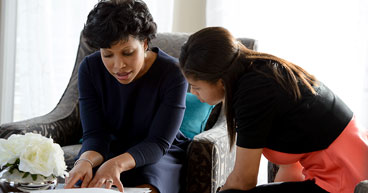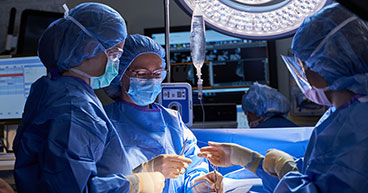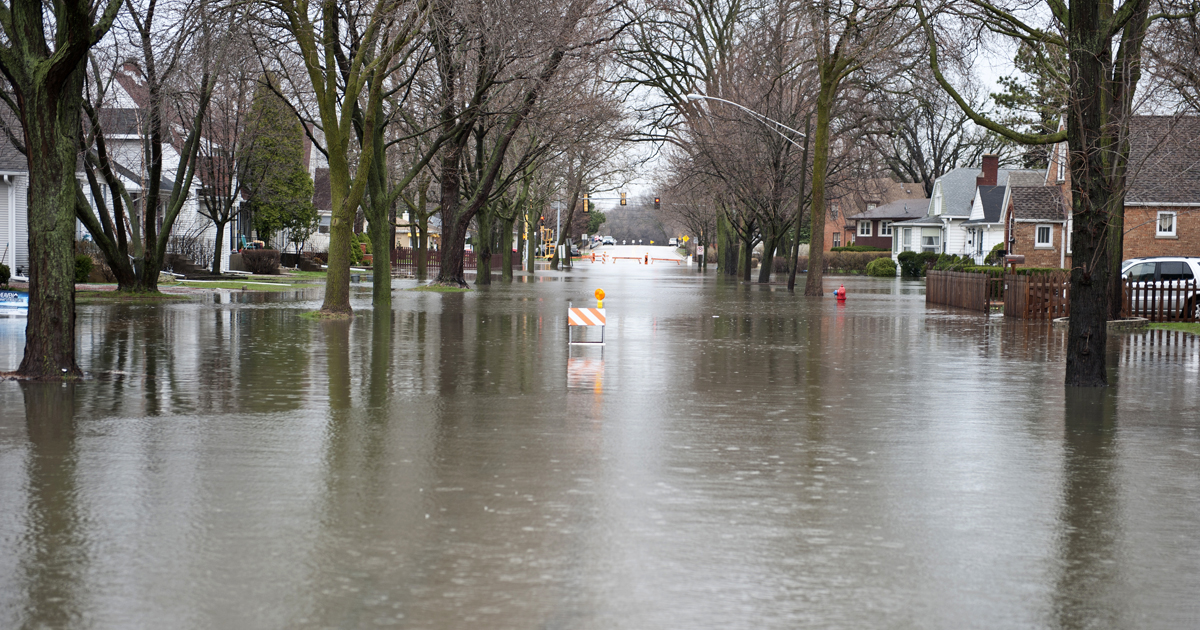
When natural disasters strike, preparation matters. That’s especially true cancer patients today as scientists say wildfires, blizzards, floods, heat waves and hurricanes are getting more frequent and intense.
Extreme weather events often shut down transportation, communication and power systems, causing interruptions in hospitals, pharmacy operations and supply chain problems. For those diagnosed with cancer or other diseases, these issues may lead to disruptions in care, including delays in diagnoses and treatments, that may result in poorer outcomes. The physical aftermath of natural disasters, such as dirty flood water or scattered debris, also often means navigating an infection minefield for patients with compromised immune systems.
When Hurricane Harvey hit Texas, for example, it dumped more rainfall on Houston than any other hurricane on record in the United States. The water flooded cancer centers, resulting in canceled appointments and treatments for patients.
Natural disasters may not only interfere with treatment of those already diagnosed with cancer, they may also increase risk for developing the disease. Wildfires are not only destructive to the people living in their path, they may also expose thousands living miles away to cancer-causing substances, or carcinogens, in the air.
In this article, we’ll explore:
If you’ve been diagnosed with cancer and are interested in a second opinion on your diagnosis and treatment plan, call us or chat online with a member of our team.
The impact of severe weather on cancer
Until 2017, not much was known about the impact of climate change on cancer, but four deadly events that year—Hurricanes Harvey, Irma and Maria, and wildfires in California—spurred a flurry of research.
Today, scientists believe climate change affects many aspects of the disease, including treatment.
Hurricanes
Several of the first studies exploring the relationship between climate change and cancer centered on hurricanes. One involved people who received radiation therapy to treat lung cancer and were unable to visit their cancer facility because it was in a hurricane disaster area. The study’s authors found that hurricanes disrupted access to care for people with cancer—especially those with locally advanced non-small cell lung cancer (NSCLC)—lowering their survival rates.
Other research examined the way hurricanes impact the most vulnerable. The study detailed the experiences of women with gynecologic cancers in Puerto Rico whose treatments were delayed or canceled after the island endured back-to-back strikes by Hurricanes Irma and Maria.
Still other studies indentified significant impacts of hurricanes on the supply chain for medical products. Hurricane Maria, for example, forced the closure of a factory in Puerto Rico that manufactured small IV fluid bags for hospitals. Shortly after, many cancer treatment facilities in the United States experienced shortages of these IV bags.
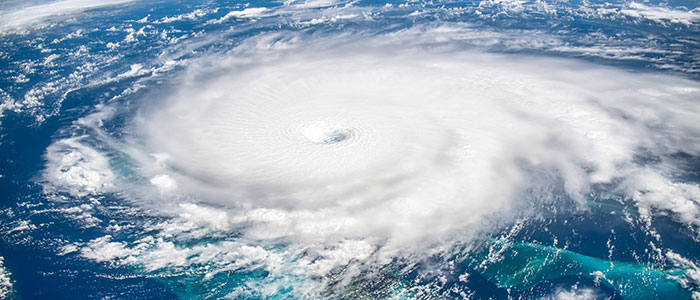
Wildfires
Climate change is expected to continue to cause major changes in weather patterns, resulting in natural disasters that are both more frequent and more severe. Consider the effects of the Canadian wildfires this year that put millions of people in the United States under alerts for unhealthy air quality, including those living in the Northeast and Midwest—areas that aren’t typically affected by wildfires—. While wildfire smoke contains carbon monoxide and other dangerous chemicals, it also carries fine particulate matter—particles small enough to be inhaled into the lungs and enter the bloodstream.
Not only can that exposure increase people’s risk for developing cancer, it may also worsen outcomes for cancer patients. One study found that exposure to fine particulate matter in the air may worsen cancer-related outcomes for adults with several types of cancer, including early breast cancer.
Rising temperatures
Warmer temperatures across the globe are changing weather patterns, but they may directly affect people with cancer, too, and put more people at risk for developing the disease.
For example, some chemotherapy medicines may increase patients’ sensitivity to warm weather, making hot flashes and fatigue brought on by cancer treatment more severe. They also may increase sensitivity to the sun’s damaging UV (ultraviolet) rays, linked to skin cancer
Also, heat exposure itself is linked to a higher risk of developing several cancers, including breast cancer. And extreme heat coupled with other side effects of climate change, like poor air quality from wildfires, may keep people indoors more, reducing their physical activity and potentially encouraging a sedentary lifestyle. This may increase the risk for several cancers, especially including colorectal, breast and uterine cancers.
Fortunately, interest in the health effects of climate change—including those related to cancer—continues to grow, and more support is going toward research on climate change and cancer.
At a recent meeting of the National Cancer Institute (NCI) Board of Scientific Advisers, in fact, the panel of experts unanimously approved a proposal to encourage more NCI-supported research on the subject.
NCI Division of Cancer Control and Population Sciences Director Katrina Goddard, Ph.D., told the board there is “a need and an opportunity for NCI” to expand its research on climate change and cancer.
“Climate change is the greatest health threat facing humanity,” she said.
Storm preparation—best practices for cancer patients
Every cancer patient should be prepared and have a plan to keep treatments on track should a natural disaster strike, says Anthony Perre, MD, FACP, New Patient Intake Physician at City of Hope Atlanta.
“In many cases, these are steps cancer patients should be taking anyway,” he says. “Have a plan of how you are going to get your medication when you need it. Make sure you have a way to get food and water. Keep appropriate records. And make sure you get good direction from your oncologist as to what other steps you’ll need to take.”
The NCI, in partnership with the American Society of Clinical Oncology, recommends that patients carry this wallet card with basic information about their cancer treatment. The card should also include contact information in case patients can’t reach their doctor in an emergency or during a natural disaster.
Dr. Perre, a cancer survivor himself, offers cancer patients the following additional storm prep advice:
Medications: In addition to making sure you have access to them, ask your physician for potential alternative medications that don’t need to be refrigerated.. Also, make sure you not only have your cancer treatment medications on hand, but those you may need for side effects, like pain, nausea, vomiting and diarrhea.
Food and water: While everyone should stock up on non-perishable food and drinking water ahead of a bad weather event, cancer patients—especially those struggling with malnutrition and dehydration—should make sure they have high-protein snacks and drinks that help restore electrolytes available.
Power: “If there is any way to have a generator available, that would be ideal,” Dr. Perre says. A generator can keep a refrigerator running so food, drinks and medications remain fresh. “Also, it’s important to have heat in the winter and cold air in the summer,” he says, “or have a plan to go somewhere locally if you don’t.”
Treatment plans: If a storm is approaching, consult with your oncologist on a plan to stay on a treatment schedule. “In the best of all circumstances, it might make sense to delay your treatment so you’re not in the middle of a natural disaster with low white (blood cell) counts and a predilection for becoming dehydrated,” he says.
Record keeping: Cancer patients should keep good documentation of their cancer journey, including records on their diagnosis, treatments, drug prescriptions and contact information for doctors and caregivers. “When I was diagnosed with cancer, there wasn’t a lot of that information stored digitally,” Dr. Perre says. “Now we can store things digitally, on a memory stick or even something like Google Docs. Of course, if the internet is out, that would be an issue. I had a three-ring binder that I kept all my records in. It’s old-school, but it works.”
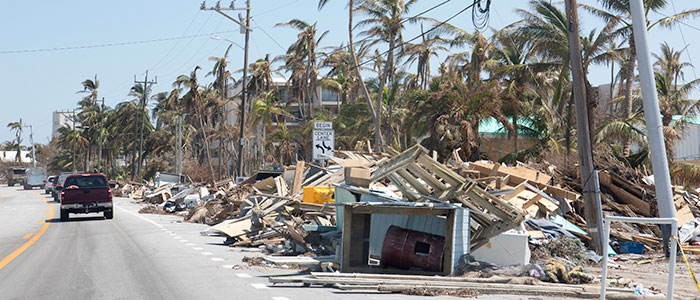
Hurricane prep tips
If you live near the coast, hurricanes and tropical storms are frightening to everyone in their path. But they may be especially scary for those living with cancer.
Because of your proximity to the water, you should have a plan in place before a hurricane or tropical storm hits. For people with cancer, this means talking to your care team about what you should do if your treatment is disrupted and whether you can get extra refills on any medications. It also means pre-registering for a special needs shelter if you require:
- Basic nursing care, oxygen therapy or help evacuating
- Electricity for medical equipment
- Help taking medications
- Observation by a health care provider
You should also have a kit prepared in advance of a potential shelter evacuation that includes items like hand sanitizer and soap, face masks and gloves, as well as your medications, dressings for wounds and anything else you need for your day-to-day care.
Snowstorm preparation tips
If you live in a state where snowstorms are common, you should take steps to ensure you’re prepared, especially if you’re experiencing certain side effects of chemotherapy, like cold-induced neuropathy. Patients with cold-induced neuropathy have numbness and tingling in their fingers and toes that can impact their ability to feel cold.
That’s why dressing in warm layers and wearing boots is especially important. So is giving yourself plenty of travel time when driving to an appointment, and taking someone with you, like a friend or family member, in case something goes wrong on the road.
You should also speak to your care team in advance of a forecast storm to help avoid treatment disruptions and ask about getting medication refills.
If you’re interested in getting screened for cancer or if you’ve been diagnosed with cancer and want a second opinion, call us or chat online with a member of our team.

